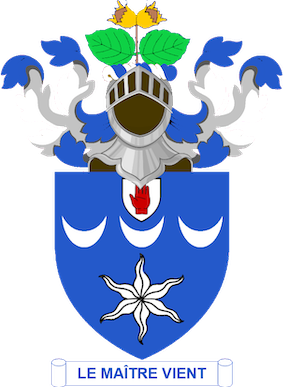Hide
hide
Hide
Transcript
of
Sir Henry Peek [Obituary]
Trans. Devon Assoc., vol. XXXI, (1899), pp. 53-54.
by
Rev. W. Harpley, M.A.
Prepared by Michael Steer

The obituary was read at the Association’s August 1899 Torrington meeting.Sir Henry was an importer of spices, tea and other groceries, philanthropist and Conservative Member of Parliament (MP). Sir Henry's probate was resworn in 1900 as leaving assets of £418,584.8 (equivalent to about £45,600,000 in 2019) and his son died the next year. His son in turn died in 1927, with assets of £172,685 and the baronetcy reached the fifth generation in 2004.In Surrey Cranleigh's old Peek Institute was founded by Peek in memory of his late wife, namely a club, with reading and billiard rooms, and a library. The obituary, from a copy of a rare and much sought-after journal can be downloaded from the Internet Archive. Google has sponsored the digitisation of books from several libraries. These books, on which copyright has expired, are available for free educational and research use, both as individual books and as full collections to aid researchers.
Sir Henry Peek, Bart., was the eldest son of the late Mr. James Peek, of Watcombe, Torquay, by his marriage with Elizabeth, the last of the Lemaitres, a refugee family from Dieppe at the revocation of the Edict of Nantes. He was born in London February 26th, 1825, and was educated to follow a commercial career, and became the head of the firm of Peek Brothers and Co., of Eastcheap. He married in 1848 Margaret, second daughter of Mr. William Edgar, of Eagle House, Clapham Common, who left him a widower in 1884. After unsuccessfully contesting the Eastern Division of Surrey in 1865, he was three years later returned in the Conservative interest for the Mid Division of that county, and he held the seat from 1868 to 1884. He was a Justice of the Peace for Surrey and a Deputy-Lieutenant and Justice of the Peace for Devon, and he was created a Baronet in 1874.
In 1871 Sir Henry Peek, whose town residence was at Wimbledon House, Surrey, first came to Rousdon, where he enclosed 250 acres of land and commenced to build a noble mansion there, which was finished in 1883, at a cost of a quarter of million of money. Within the beautiful grounds Sir Henry, at his own cost, also built and endowed a church on the site of the old parish church, which was crumbling to ruins, and erected elaborate schools, as well as model farm buildings and houses for cottagers. He instituted a system of penny dinners, the adverse balances being annually made up by himself, and it is, perhaps, a remarkable fact that pauperism is an unknown quantity in Rousdon. Personally Sir Henry was one of the most unassuming and quietest of men, seldom if ever thrusting himself to the front. His chief delight was philanthropy, but everything he did was done in a quiet, unostentatious manner, so that beyond the parties interested few were aware of his kindly acts; hence it is, perhaps, that the prominent part he played in the preservation of commons and open spaces seems to have been generally overlooked. Wimbledon Common, Wandsworth Common, Epping Forest, and the beautiful Burnham Beeches were, largely by his exertions, preserved to the public. Those who only knew him as a man of business or as a political representative can form little idea of the large amount of good achieved by his ceaseless energy, active brain, and warm heart.
Sir Henry was much interested in natural history and cognate sciences, and was a Fellow of the Geographical, Zoological, and other societies, and of the Anthropological Institute. The museum at Rousdon contains some remarkable specimens of China and Japan art, and there is an interesting collection from Polynesia Micronesia. The collection of British birds is complete (except for three specimens), in accordance with the list published by the Ornithological Union, and the catalogue was edited, with an introduction, by the late Sir William Flower, F.R.S.
Sir Henry Peek became a Life Member of this Association in 1872. He hospitably entertained the members on the occasion of the meeting at Seaton in 1885, and the handsome reception he gave at the Annual Meeting last year will not soon be forgotten. He died, after a short illness, at Rousdon on Friday, August 26th, 1898, aged 73 years.
